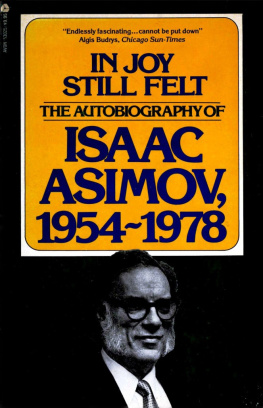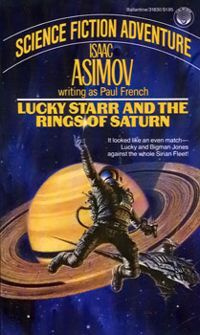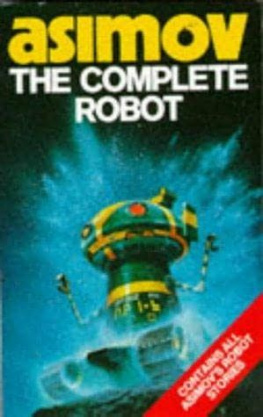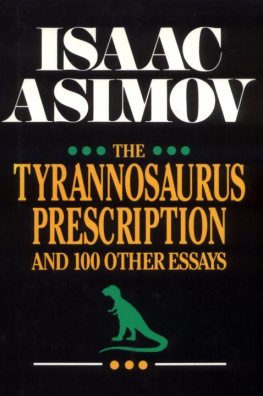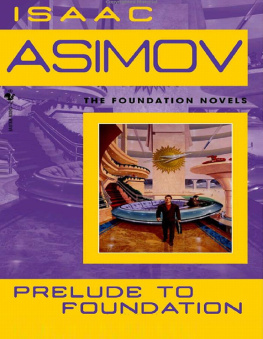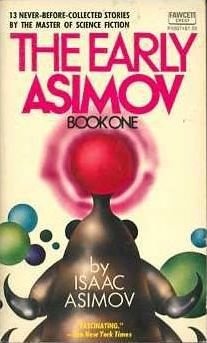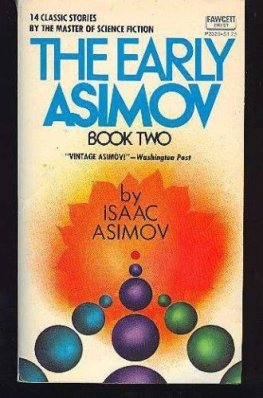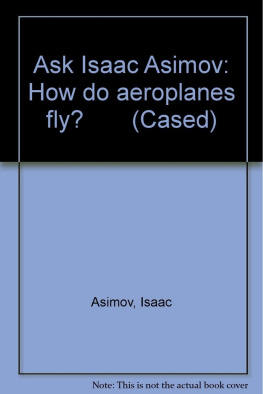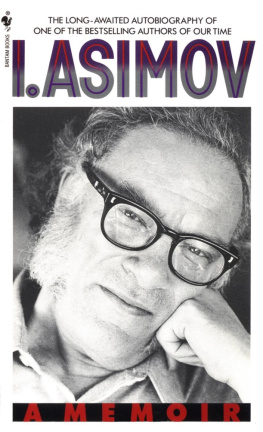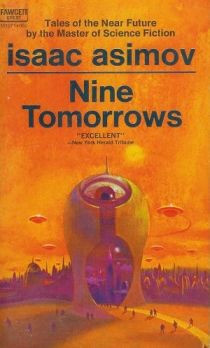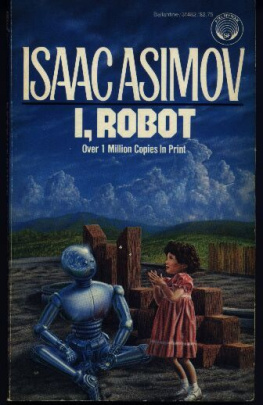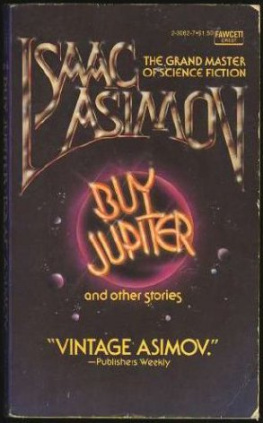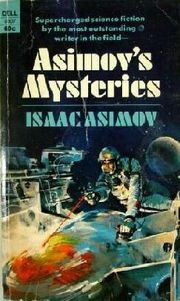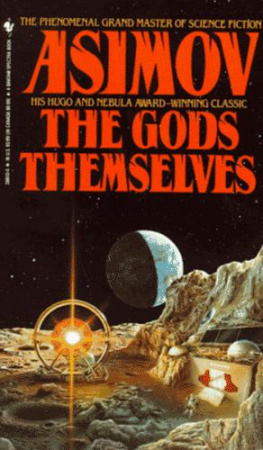Isaac Asimov - The Dying Night
Here you can read online Isaac Asimov - The Dying Night full text of the book (entire story) in english for free. Download pdf and epub, get meaning, cover and reviews about this ebook. year: 1956, publisher: Fantasy House, Inc., genre: Science fiction. Description of the work, (preface) as well as reviews are available. Best literature library LitArk.com created for fans of good reading and offers a wide selection of genres:
Romance novel
Science fiction
Adventure
Detective
Science
History
Home and family
Prose
Art
Politics
Computer
Non-fiction
Religion
Business
Children
Humor
Choose a favorite category and find really read worthwhile books. Enjoy immersion in the world of imagination, feel the emotions of the characters or learn something new for yourself, make an fascinating discovery.

- Book:The Dying Night
- Author:
- Publisher:Fantasy House, Inc.
- Genre:
- Year:1956
- Rating:4 / 5
- Favourites:Add to favourites
- Your mark:
- 80
- 1
- 2
- 3
- 4
- 5
The Dying Night: summary, description and annotation
We offer to read an annotation, description, summary or preface (depends on what the author of the book "The Dying Night" wrote himself). If you haven't found the necessary information about the book — write in the comments, we will try to find it.
The Dying Night — read online for free the complete book (whole text) full work
Below is the text of the book, divided by pages. System saving the place of the last page read, allows you to conveniently read the book "The Dying Night" online for free, without having to search again every time where you left off. Put a bookmark, and you can go to the page where you finished reading at any time.
Font size:
Interval:
Bookmark:
The Dying Night
by Isaac Asimov
Part 1
It was almost a class reunion, and though it was marked by joylessness, there was no reason as yet to think it would be marred by tragedy.
Edward Talliaferro, fresh from the Moon and without his gravity legs yet, met the other two in Stanley Kaunass room. Kaunas rose to greet him in a subdued manner. Battersley Ryger merely sat and nodded.
Talliaferro lowered his large body carefully to the couch, very aware of its unusual weight. He grimaced a little, his plump lips twisting inside the rim of hair that surrounded his mouth on lip, chin, and cheek.
They had seen one another earlier that day under more formal conditions. Now for the first time they were alone, and Talliaferro said, This is a kind of occasion. Were meeting for the first time in ten years. First time since graduation, in fact.
Rygers nose twitched. It had been broken shortly before that same graduation and he had received his degree in astronomy with a bandage disfiguring his face. He said grumpily, Anyone ordered champagne? Or something?
Talliaferro said, Come on! First big interplanetary astronomical convention in history is no place for glooming. And among friends, too!
Kaunas said suddenly, Its Earth. It doesnt feel right. I cant get used to it. He shook his head but his look of depression was not detachable. It remained.
Talliaferro said, I know. Im so heavy. It takes all the energy out of me. At that, youre better off than I am, Kaunas. Mercurian gravity is 0.4 normal. On the Moon, its only 0.16. He interrupted Rygers beginning of a sound by saying, And on Ceres they use pseudo-grav fields adjusted to 0.8. You have no problems at all, Ryger.
The Cerian astronomer looked annoyed, Its the open air. Going outside without a suit gets me.
Right, agreed Kaunas, and letting the sun beat down on you. Just letting it
Talliaferro found himself insensibly drifting back in time. They had not changed much. Nor, he thought, had he himself. They were all ten years older, of course. Ryger had put on some weight and Kaunass thin face had grown a bit leathery, but he would have recognized either if he had met him without warning.
He said, I dont think its Earth getting us. Lets face it.
Kaunas looked up sharply. He was a little fellow with quick, nervous movements of his hands. He habitually wore clothes that looked a shade too large for him.
He said, Villiers! I know. I think about him sometimes. Then, with an air of desperation, I got a letter from him.
Ryger sat upright, his olive complexion darkening further and said with energy, You did? When?
A month ago.
Ryger turned to Talliaferro. How about you?
Talliaferro blinked placidly and nodded.
Ryger said, Hes gone crazy. He claims hes discovered a practical method of mass-transference through space.
He told you two also?Thats it, then. He was always a little bent. Now hes broken.
He rubbed his nose fiercely and Talliaferro thought of the day Villiers had broken it.
For ten years, Villiers had haunted them like the vague shadow of a guilt that wasnt really theirs. They had gone through their graduate work together, four picked and dedicated men being trained for a profession that had reached new heights in this age of interplanetary travel.
The Observatories were opening on the other worlds, surrounded by vacuum, unblurred by air.
There was the Lunar Observatory, from which Earth and the inner planets could be studied; a silent world in whose sky the home-planet hung suspended.
Mercury Observatory, closest to the sun, perched at Mercurys north pole, where the terminator moved scarcely at all, and the sun was fixed on the horizon and could be studied in the minutest detail.
Ceres Observatory, newest, most modern, with its range extending from Jupiter to the outermost galaxies.
There were disadvantages, of course. With interplanetary travel still difficult, leaves would be few, anything like normal life virtually impossible, but this was a lucky generation. Coming scientists would find the fields of knowledge well-reaped and, until the invention of an interstellar drive, no new horizon as capacious as this one would be opened.
Each of these lucky four, Talliaferro, Ryger, Kaunas, and Villiers, was to be in the position of a Galileo, who by owning the first real telescope, could not point it anywhere in the sky without making a major discovery.
But then Romero Villiers had fallen sick and it was rheumatic fever. Whose fault was that? His heart had been left leaking and limping.
He was the most brilliant of the four, the most hopeful, the most intenseand he could not even finish his schooling and get his doctorate.
Worse than that, he could never leave Earth; the acceleration of a spaceships take-off would kill him.
Talliaferro was marked for the Moon, Ryger for Ceres, Kaunas for Mercury. Only Villiers stayed behind, a life-prisoner of Earth.
They had tried telling their sympathy and Villiers had rejected it with something approaching hate. He had railed at them and cursed them. When Ryger lost his temper and lifted his fist, Villiers had sprung at him, screaming, and had broken Rygers nose.
Obviously Ryger hadnt forgotten that, as he caressed his nose gingerly with one finger.
Kaunass forehead was an uncertain washboard of wrinkles. Hes at the Convention, you know. Hes got a room in the hotel405.
I wont see him, said Ryger.
Hes coming up here. He said he wanted to see us. I thoughtHe said nine. Hell be here any minute.
In that case, said Ryger, if you dont mind, Im leaving. He rose.
Talliaferro said, Oh, wait a while. Whats the harm in seeing him?
Because theres no point. Hes mad.
Even so. Lets not be petty about it. Are you afraid of him?
Afraid! Ryger looked contemptuous.
Nervous, then. What is there to be nervous about?
Im not nervous, said Ryger.
Sure you are. We all feel guilty about him, and without real reason. Nothing that happened was our fault. But he was speaking defensively and he knew it.
And when, at that point, the door signal sounded, all three jumped and turned to stare uneasily at the barrier that stood between themselves and Villiers.
The door opened and Romero Villiers walked in. The others rose stiffly to greet him, then remained standing in embarrassment, without one hand being raised.
He stared them down sardonically.
Heschanged, thought Talliaferro.
He had. He had shrunken in almost every dimension. A gathering stoop made him seem even shorter. The skin of his scalp glistened through thinning hair, the skin on the back of his hands was ridged crookedly with bluish veins. He looked ill. There seemed nothing to link him to the memory of the past except for his trick of shading his eyes with one hand when he stared intently and, when he spoke, the even, controlled baritone of his voice.
He said, My friends! My space-trotting friends! Weve lost touch.
Talliaferro said, Hello, Villiers.
Villiers eyed him. Are you well?
Well enough.
And you two?
Kaunas managed a weak smile and a murmur. Ryger snapped, All right, Villiers. Whats up?
Ryger, the angry man, said Villiers. Hows Ceres?
It was doing well when I left. Hows Earth?
You can see for yourself, but Villiers tightened as he said that.
He went on, I am hoping that the reason all three of you have come to the Convention is to hear my paper day after tomorrow.
Your paper? What paper? asked Talliaferro.
I wrote you all about it. My method of mass-transference.
Ryger smiled with one corner of his mouth. Yes, you did. You didnt say anything about a paper, though, and I dont recall that youre listed as one of the speakers. I would have noticed it if you had been.
Font size:
Interval:
Bookmark:
Similar books «The Dying Night»
Look at similar books to The Dying Night. We have selected literature similar in name and meaning in the hope of providing readers with more options to find new, interesting, not yet read works.
Discussion, reviews of the book The Dying Night and just readers' own opinions. Leave your comments, write what you think about the work, its meaning or the main characters. Specify what exactly you liked and what you didn't like, and why you think so.

